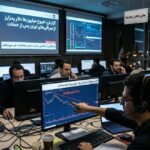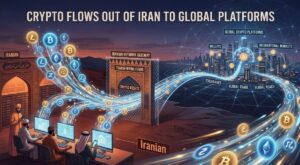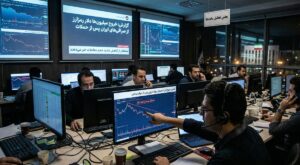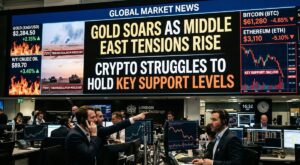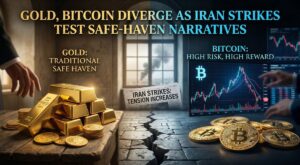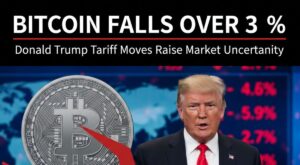Dubai – Blockchain technology could become a vital catalyst in accelerating regional trade of new energy commodities and carbon certificates across the Middle East and North Africa (MENA), according to Jan Haizmann, CEO of the Zero Emissions Traders Alliance (ZETA).
As MENA countries rapidly develop renewable energy systems, organizations like ZETA are focusing on building robust markets for emerging energy commodities. “Markets are the beating heart of any energy system,” said Haizmann. “For new energy systems to scale, we need functioning regional markets—particularly for carbon and renewable energy.”
Uniting the Gulf with Digital Infrastructure
Haizmann believes the Gulf region has immense untapped potential. If countries collaborate, he says, they can establish efficient markets for carbon trading and green energy. Among the digital tools being explored, blockchain stands out for its ability to create trust, auditability, and transparent trading in a region where policy fragmentation is common.
“Blockchain might offer solutions that fit the Gulf’s unique conditions,” Haizmann noted. “We are proceeding with cautious optimism, identifying pathways where it can work.”
Why Markets Matter for Low-Carbon Commodities
Unlike fossil fuels, trading in low-carbon commodities involves two distinct elements: the physical product and its green attributes, often tracked through certificates. These green certificates should be tradable separately, and their credibility is essential to attract international investors.
To build these markets, ZETA is examining how emerging technologies like blockchain can enable fair, low-cost trading while protecting against fraud and manipulation.
Lessons from Europe’s Enerchain
Helping shape ZETA’s approach is Michael Merz, a veteran of European energy trading systems and the force behind “Enerchain”—the only live blockchain project in European energy markets. Merz’s insights are helping ZETA understand blockchain’s potential and its limitations.
He highlights a fundamental challenge: the MENA region lacks a unified regulatory body akin to the EU. Even within the UAE, policies differ between Emirates—Abu Dhabi’s RES certificates, for instance, are not tradable in Dubai.
“In this fragmented landscape,” Merz argues, “blockchain could provide a shared, immutable audit trail—a source of artificial trust where centralized oversight is absent.”
Blockchain as a Shared Ledger and Trading Platform
Technically, blockchain can help prevent manipulation by offering a shared transaction log. A project owner can register for green certificates, and every issuance or transfer can be logged immutably. Even if different countries use different registries, blockchain can serve as a unified audit trail.
Beyond recordkeeping, blockchain can be integrated into trading systems. Trades can trigger certificate transfers, with each event logged in the blockchain—ensuring transparency from issuance to cancellation or retirement of certificates.
Merz recommends establishing a single regional registry to enhance market liquidity. Blockchain, whether embedded in the registry or used as an external layer, would help maintain data integrity and prevent double-counting.
A Neutral, Decentralized Solution
For a regional solution to succeed, it must be neutral, transparent, and resistant to manipulation—without a single controlling authority. That’s where the Kaspa Industrial Initiative (Kii) enters the picture.
Kii is developing a decentralized, permissionless system governed by a Decentralized Autonomous Organization (DAO). With a focus on energy and utilities, Kii is also creating a stablecoin called Gigawatt-coin (GWC), envisioned as a settlement tool for energy trading, backed by a mix of currencies, carbon credits, and tokenized energy assets.
“The goal is to bridge digital finance and green energy,” says Kii, “while shielding markets from political interference.”
Gearing Up for a Pilot in the Gulf
ZETA and Kii are now working on designing a pilot blockchain-based trading system in the GCC. The initiative aims to develop interoperability standards that could one day support trillions in capital inflows into digital energy assets.
As ZETA continues to push for regional collaboration, the organization remains committed to building trusted, scalable, and transparent markets for the energy systems of tomorrow.



